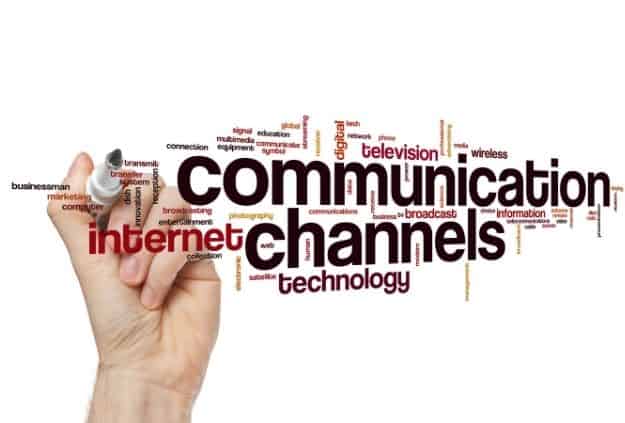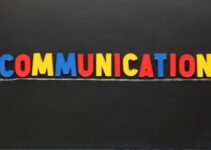What Is Oral Communication?
Communication refers to how information is received and passed between individuals through a common system of symbols, signs, or behavior.
You can trace communication back to the origin of man. It’s believed that initially, man did not have articulate communication. However, with time our ancestors developed more eloquent and sophisticated communication methods.
Oral communication is one of the oldest means of communication. Furthermore, it’s regarded as the most trusted communication method since one can quickly learn the other person’s reaction through observing their facial expression, general body posture, or tone in telephone cases.
For this reason, oral communication is the most suitable for formal arrangements such as meetings, lectures, conferences, interviews, among others.
What Is Oral Communication?
Oral communication refers to the process of expressing ideas through word of mouth. This can be done in a conversation between two or more individuals. It can either be direct (face-to-face) or indirectly through telephone conversation. Besides, speeches, discussions, and presentations are also perceived as oral communication.
As one of the communication methods, oral communication can help build trust—becoming the most reliable communication method. Moreover, because of its immediate feedback, it’s more effective than email or even text messages.
This is because you can have sensitive conversations—you negotiate and resolve conflict, get your points across, avoid misunderstanding, and reduce confusion. That said, let’s now plunge in and see the various importance of oral communication, shall we?
What are the Different Considerations in Oral Communication?
The Importance of Oral Communication
Oral communication is the most suitable communication method. For example, verbal communication is fundamental when learning a language since listening allows one to master each word’s correct pronunciation and articulation.
Additionally, listening and speaking skills used during verbal communication helps convey emotions during a conversation. Let’s dive in and see other benefits of oral communication.
- It has a high level of understanding and transparency, thanks to its interpersonal nature.
- Oral communication is flexible, which allows changes in decisions that have been made.
- It has immediate feedback, making decisions quickly and without any delay.
- Oral communication is the most suitable method of solving conflicts, disputes, and many other differences within an organization.
- It fosters teamwork and group energy.
- Promotes receptive and encouraging confidence among organizational employees.
- You can use oral communication to transfer private and confidential information in an organization since it cannot be easily intercepted but other organizations.
Limitations of Oral Communication
But oral communication also comes with some limitations. Below are some of the pros of verbal communication:
- Not convenient for business transactions since it leaves no evidence besides word of mouth, which you can easily alter.
- Oral communication is easier to tamper with than the written communication.
- It is time-saving during informal interaction, but in the case of meetings, long speeches consume a lot of time and are unproductive at times.
- Requires attentiveness and receptivity when listening as it can lead to misunderstandings when the information is not complete and lack essentials.
- Oral communication requires attentiveness and great receptivity on the part of the audience.
- Speeches— are not frequently used as legal records except in investigation work.
Types Of Oral Communication
There are various types of oral communication that you can find within a business setting. Moreover, for your career advancement, you need more oral communication skills. So what are some of the types of oral communication?
1. Elevator Pitch
Elevator pitch refers to a form of oral communication where you have a brief explanation about yourself and what you want from another person. Besides, you can also use an elevator pitch to spark interest in your organization’s wants or use it to create interest in a project, idea, or product. Usually, a good elevator pitch should not last longer than 30 seconds.
2. Formal Conversations
Formal conversations are usually common at workplaces where employees interact with each other or with their managers. They are rigid in nature, direct, and condensed, as one can get the point across in a few words.
3. Informal Conversations
Informal conversations are discussions that one can have with either family members or friends. They come mainly without any agenda to be discussed in the process. They are friendly conversations—meaning you can talk about your day, what you’re going to eat for lunch or discuss your weekend plans.
4. Business Presentations
Business presentation refers to formal information about the business products or practices in an organization. Public skills are essential skills to develop in case you want to command a multitude. Besides, you need Harappa’s LEP and PAM Frameworks for business presentations and the Four Ps of Pitch, Projection, Pace, Leverage, and Pauses.
5. Speeches
Speech refers to means of communication where ideas and thoughts are expressed by articulating vocal sounds to the target audience. They are essential in businesses of communication or community outreaches. They are usually reserved for top managers and leaders when passing information to their juniors or audience.
5 Major Elements of Communication Process
Communication follows a series of channels for it to reach the target audience. For communication to be effective, it requires a sender, a message, and a recipient— even though the receiver may not be aware of the sender’s intent to communicate at the time of communication. That said, let’s discuss the elements of communication.
1. Sender
The sender plays a vital role when initiating a communication channel. For a sender to communicate successfully, it must use effective verbal and non-verbal techniques. When speaking or writing, organize your thoughts to make them easy to understand.
Moreover, maintaining eye contact, giving accurate information, and even using correct grammar is also essential in the effectiveness of a message to the target audience. The sender needs to have some understanding of who the receiver is in order to modify the message to suit the receiver.
2. Receiver
The receiver is the channel to which the sender transmits the message. It may be a person or an entire audience who receives the message. Either way, the receiver needs to understand the message to achieve the desired objectives in the best manner possible.
In a basic communication model, the receiver is directly across from the sender. The best way to receive a message is by sitting in a straight posture, maintaining eye contact, and listening carefully—whether verbally or non verbally.
Don’t get distracted by anything when you’re listening—so nodding and smiling as you listen to the sender demonstrates that you’re following along.
3. Message
The message is the most important element for effective communication. It can come in different forms, such as an oral presentation, a written document, an advertisement, or just a comment. The message isn’t necessarily what the sender intends but rather what the receiver perceives the message to be. As a result, the sender should write the message carefully and evaluate how you can interpret the message.
4. Channel
Communication channel refers to the medium through which a message is sent to its intended receiver. It acts as a connector between the sender and receiver. The communication channels used can be in the form of verbal, non-verbal, and written.
Written communication should be clear so that they don’t rely on a specific tone of voice to convey a message accurately and effectively. Cons of television as a channel for communication is it’s extensive outstretched to a wide audience and the sender’s ability to manipulate the message using editing and special effects.
5. Feedback
Feedback is the last element for effective communication, and it bears the receiver’s response or reaction to the sender’s message. The receiver transmits feedback by asking questions, making comments, or even supporting the message that has been delivered. Moreover, feedback helps the sender determine how the receiver expounds the message.
Oral Communication Tips
Having walked you through communication channels, let’s now dive in and see various ways to better your oral communication skills.
1. Read a Lot
Reading regularly is considered the best practice that you can use to enhance basic oral communication skills. Reading literature, newspapers, magazines, novels, fiction, etc., improves your vocabulary skills. Besides, this will help you develop your thinking process and enhance your sharpness in gathering ideas and expressing them in good English.
2. Make Good Use of Your Dictionaries
Dictionary is genius in new words with its synonyms, meanings, adjective and noun forms explained in-depth. This helps the readers to learn the best communication words and the word’s usage. During your free time, look for unfamiliar words with their meaning and pronunciation.
3. Listen Always
Listening is one of the practices that will help you to train yourself for oral communication. Initially, you will be diverted from the listening as most words will appear unfamiliar, and you might not be able to understand everything at go.
Besides, the inflection of a native English speaker might also be non-understandable and finding difficulty in understanding the tone and accent of the spoken words and sentences.
It will take some time and dedication for you to improve your oral communication skills, and in that case, you need to have a lot of patience and perseverance. Some of the ways you can better understand are listening to slow English songs, speech, presentations, news, debate, or even watching movies.
4. Jot Down Notes
In the reading process, you can come across some specific words that are hard to spell out. Noting them down makes it easier for you to recognize and spell such words correctly. Besides, writing helps you be familiar with sentence construction, which will later help you in your conversation.
5. Read Out Loud
Reading out loud is indeed a good reading habit, and you need to continue practicing it. Nevertheless, murmuring will not help you that much in getting over your oral communication skills.
You need to read aloud so that you can clearly hear your voice and make out the necessary mistakes in the reading process. Pronounce each and every word loudly and clearly to improve your communication skills.
6. Ask Your Teacher
An English expert—be it your teacher—can help you correct communication errors whenever you approach them. Analyzing the uncertainties related to both grammatical and sentence construction issues will remarkably help you become skilled in oral communication.
7. Build Your Vocabulary
A good speaker should have new words in his vocabulary and use them selectively when speaking. This is one of the ways of becoming an excellent oral communicator, and when you make this a habit, you are augmenting your vocabulary skills.
8. Watch More Movies
When you are watching good quality English movies during your leisure time, it can help you in improving your accent and in sentence construction. Besides, this is an effective way to enhance your self-confidence.
Bottom Line
Having taken you through oral communication, you now have proven ways to improve your oral communication skills. You’ll most likely come across various challenges, but keeping your dedication and patience will see you overcome this challenge sooner than you can.










